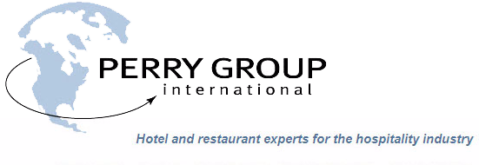A hotel interim manager can help your hotel through many transitions. Still, it will not be the best option for every situation. Some circumstances will make a temporary manager less practical or less cost effective. When you enter a transitionary period for your hotel management, you need to assess where you are and what your hotel needs to get through to the next management team. If an interim manager is not right, you need to look for alternatives.
Cost Concerns
If your property goes into foreclosure, you are working to maintain the hotel value until either you bring it out or the property or loan gets sold. In this case, part of your equation is the need to cut costs. An interim manager may well be able to help get the balance sheets under control. When you are already in bankruptcy though, the monthly fees that the interim manager would charge can cut into your ability to save, especially in the short term.
If the hotel has performed well, there are still cost incentives for you not to bring in someone from the outside. An interim manager creates a new salary, often higher than what elevating someone in-house would give you. You can maintain a healthy status quo for the short term, and save the cost of an additional salary during your transition.
Continuity Concerns
When your hotel has performed well, you may not want to shift gears with a hotel interim manager. One scenario where this comes into play is where you have an experienced management team in place. The lead manager leaves, but you have a strong group of people who understand how things have worked. Even if you plan to conduct a full management search, you can benefit from a manager experienced with the hotel running things until the new manager comes in.
Similarly, when investors or owners decide to sell a high-performing property, changing management teams in the middle of the process can send the wrong signal. New buyers will want to see opportunity to take over a property that has everything working well. Bringing in an interim manager can disrupt the comfort level of those working there, and concern a new buyer about whether the performance can continue as effectively. Finding ways to keep the current team running the hotel gives a clear benefit in those sale scenarios.
Hiring From Within
Hotels are not fungible properties. If you have a culture established for your hotel, your employees and guests rely on that culture as a reason to work or stay there. No matter how good an outside interim manager is, he or she will have trouble replicating the culture. Elevating a manager from the current team, even during a temporary period, can show your commitment to maintaining the feel of a hotel property.
Even beyond the cultural benefits, lifting up someone from the current team can help your staff’s morale considerably. Bringing in an outside consultant can signal to the team that they can expect outsiders to come and threaten everyone’s jobs. Lifting people from within, especially if you have a charismatic, well-liked team member, gives you a chance to demonstrate commitment to the staff you have in place.
Planning for the Next Phase
No matter what route you take, it is critical for you to think and plan for not only the next phase of management in your hotel, but the interim stage as well. A hotel interim manager often provides advantages. Sometimes, he or she can impose burdens on the team you have. Take the time to assess your situation, how your hotel is performing, and what goals you actually have. A 90-day plan built to set you up for your goals, based on where you are now, can make all the difference in your ability to meet them.






